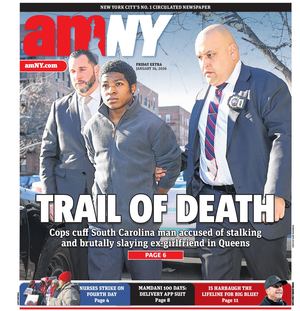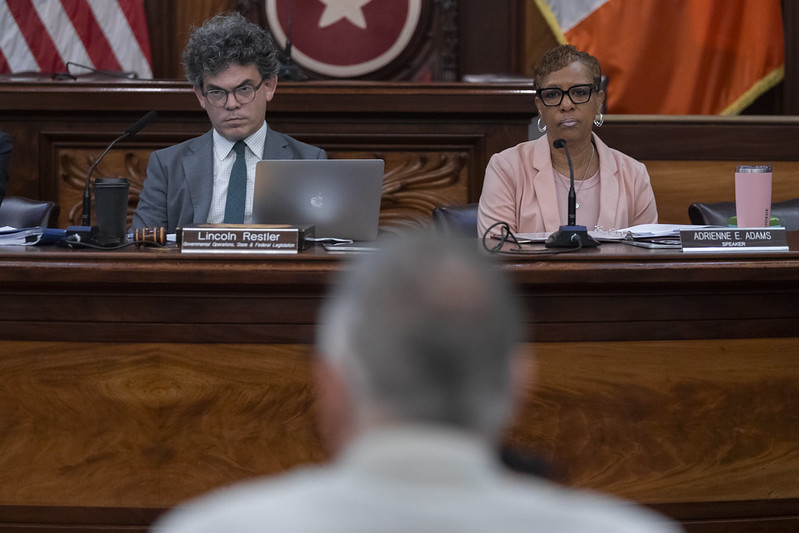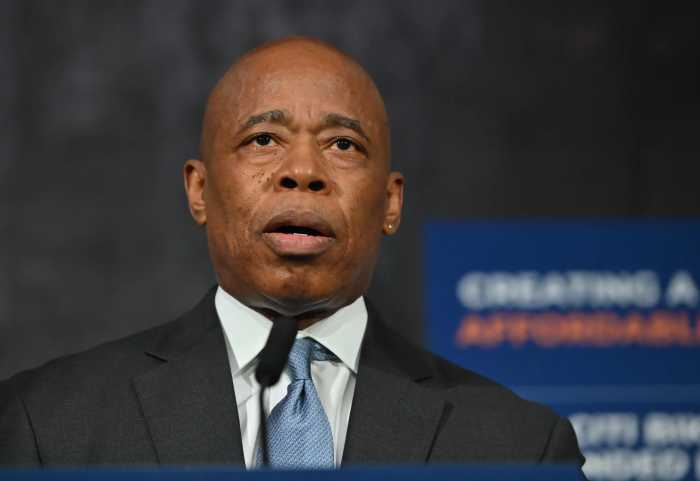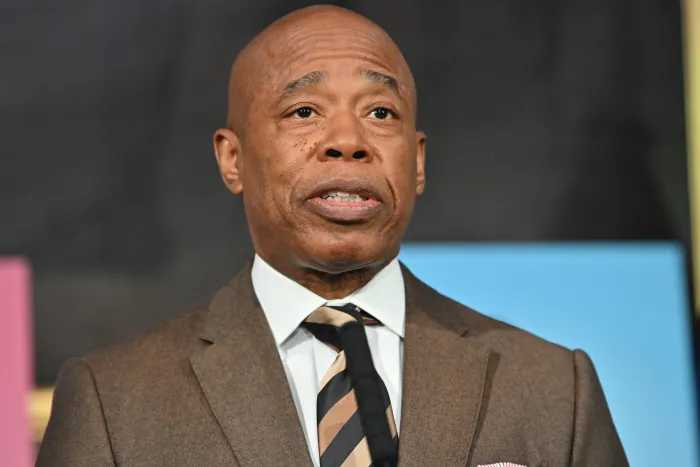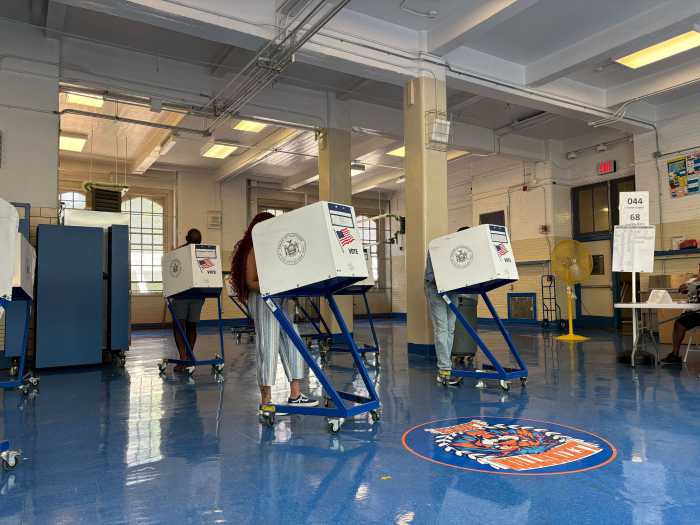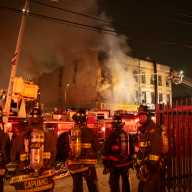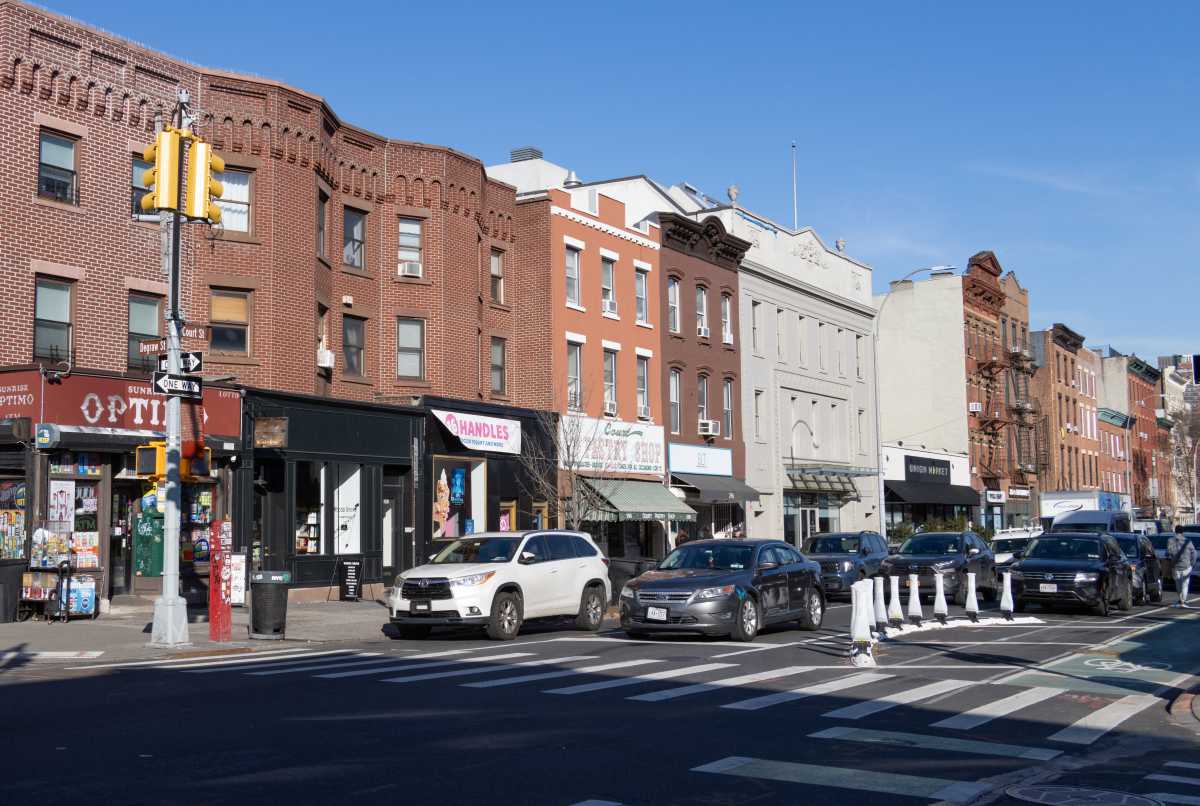The fight of the summer may be at City Hall.
Tensions between Mayor Eric Adams and the City Council grew further Wednesday when a top City Hall official read a blistering statement from the mayor during a Council hearing on a bill intended to subject more of his appointees to council approval — then left the room without taking questions.
“This to me illustrates a contempt for this council, which we have all witnessed with great clarity,” City Council Speaker Adrienne Adams said as the aide, Tiffany Raspberry, walked out of the council chamber.
Raspberry, who is Adams’ director of intergovernmental affairs, testified at the end of the hearing after council members blasted the mayor’s office for initially not sending anyone to speak about his position on the bill and take their questions. She claimed that the council never “formally invited” anyone from the administration to testify at the hearing.
Additionally, Raspberry said that her team had reached out to Speaker Adams’ office last week asking if there was an expectation to testify at the hearing and “we were told that there was not.”
Raspberry further alleged that Council Member Lincoln Restler (D-Brooklyn) — who led the hearing — exchanged a series of “casual messages” about the administration testifying with her director of legislative affairs, which she took to be sent “in jest.”
“At no time did we receive, in the traditional way in which the administration is invited to testify at hearings, a formal invitation to testify,” Raspberry said.
The City Council bill that was the subject of the hearing, if enacted, would expand the chamber’s “advice and consent” power to an additional 21 mayoral appointees.
Speaker Adams, who introduced the bill last week, says it is a good government measure aimed at increasing public scrutiny of mayoral appointees to ensure they are the most qualified possible picks to lead the agencies they are being nominated to.
At the moment, the council only has approval power over two city agency heads: the corporation counsel — the city’s top lawyer, who leads the Law Department — and the Department of Investigation (DOI) commissioner.
However, the mayor vehemently opposes the measure — a message that Raspberry delivered loud and clear during the May 29 hearing.
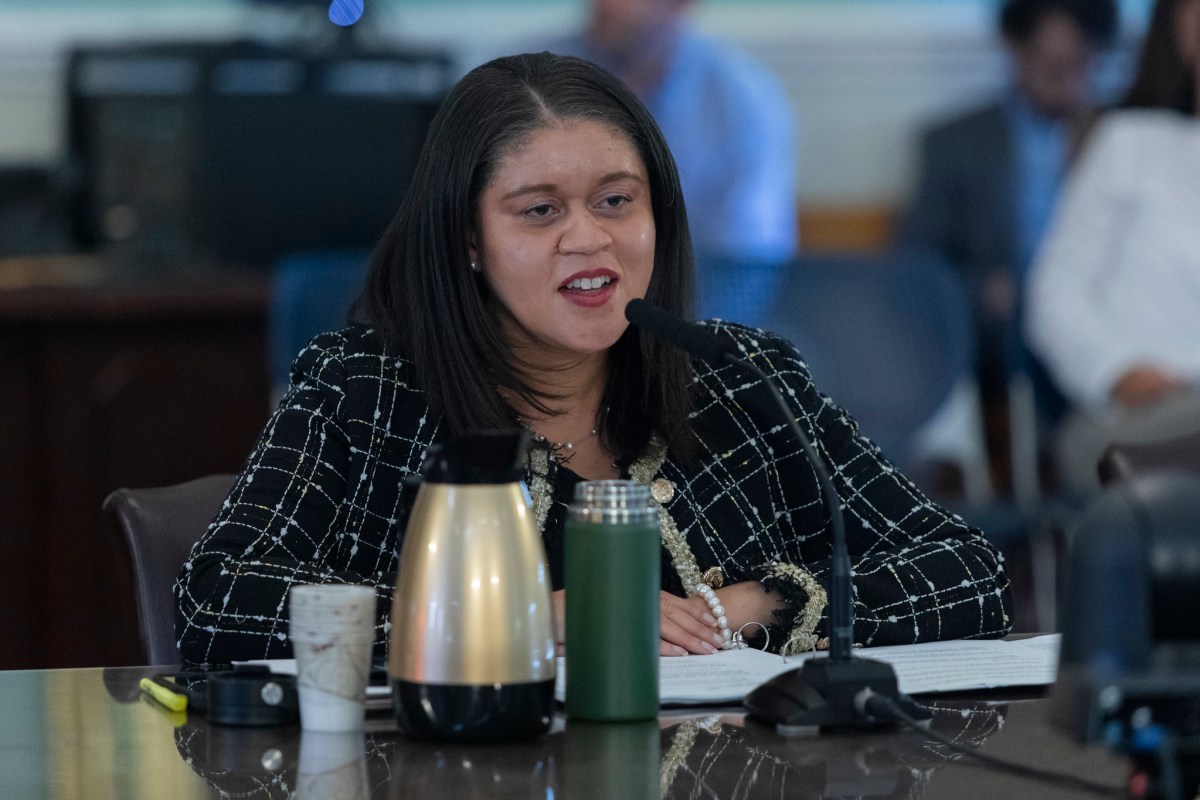
Restler, however, fired back by noting that the administration is “not required to receive a formal invitation to testify.” He also pointed to a public notice for the hearing sent out last Thursday and said there were numerous exchanges over email and text message between himself, top council staffers and senior members of the mayor’s team about the hearing.
Restler told amNewYork Metro that he did not know the administration would not be testifying until an official notified him with a call at 9 p.m. on Tuesday. He also said he did not know why Raspberry thought his text exchange with her head of legislative affairs was in jest.
‘Absolutely bad,’ mayor claims
In the mayor’s testimony, which Raspberry read, he tore into the council legislation.
Adams started by claiming that appointing city agency leaders has been the mayor’s sole authority since 1884, when then-New York Governor — and later President — Grover Cleveland signed a bill enshrining that standard into law.
The mayor went on to suggest that the legislation would be “absolutely bad” for New Yorkers by slowing down the wheels of city government.
“Any uncertainty or delay in appointing agency leadership creates the real possibility for harm from delayed service delivery,” the testimony says. “This bill risks diminishing the city’s ability to manage and respond to the service needs that we all hear from the public every day.”
Under the legislation, the council would have to hold a hearing on the nomination within 30 days of receiving it from the mayor’s office. After that period, the mayor’s appointment would automatically be approved.
Earlier in the hearing, Restler argued the council needs that period of time to properly vet the mayor’s nominees.
Additionally, the mayor says the bill would politicize the appointment process and hinder the city’s ability to respond to emergencies. The speaker earlier argued that the bill is not politicizing the process, as it has approved all of the appointments the mayor has put forth over the past 2 1/2 years.
The mayor concluded his testimony by urging council members to vote against what he characterized as “misguided” legislation.
As Raspberry walked out of the chamber, Restler said he wished she would have taken questions on the mayor’s testimony because it had some “significant inaccuracies.” He added that Raspberry’s remarks “underscores” why an expansion of advice and consent is needed.
Charter Revision Commission
The hearing took place just hours before the first meeting of the mayor’s recently established Charter Revision Commission, a panel whose formation could block the council legislation from moving forward. Adams denies that he convened the commission as a ploy to halt the advice and consent bill, instead insisting it is a response to community advocates concerned about the council’s handling of public safety.
The legislation must be approved via a ballot referendum after going through the council. Because of a quirk in the City Charter, if the commission puts forth its own proposals, the council bill will not be able to appear on the ballot this November at the same time.
Many of the mayor’s 13 appointees to the commission, whom he announced last week, are his closest allies. Those include its chair Carlo Scissura, who is president and CEO of the New York Buildings Congress; vice chair Hazel Dukes, who heads the New York chapter of the NAACP; former Bronx President Ruben Diaz Jr., who now works as a lobbyist; former first Deputy Mayor Lorraine Grillo; and Rev. Herbert Daughtry, a longtime mentor of his.
Adams also appointed one of his top advisers, Diane Savino, as the commission’s executive director on Wednesday. During the meeting, Savino referenced the compressed timeline in which the commission must draft its proposed changes to the City Charter.
“We have to complete the work of this commission in a very quick period of time in order to be ready to present our final report by the end of July, no later than August 5,” she said.
